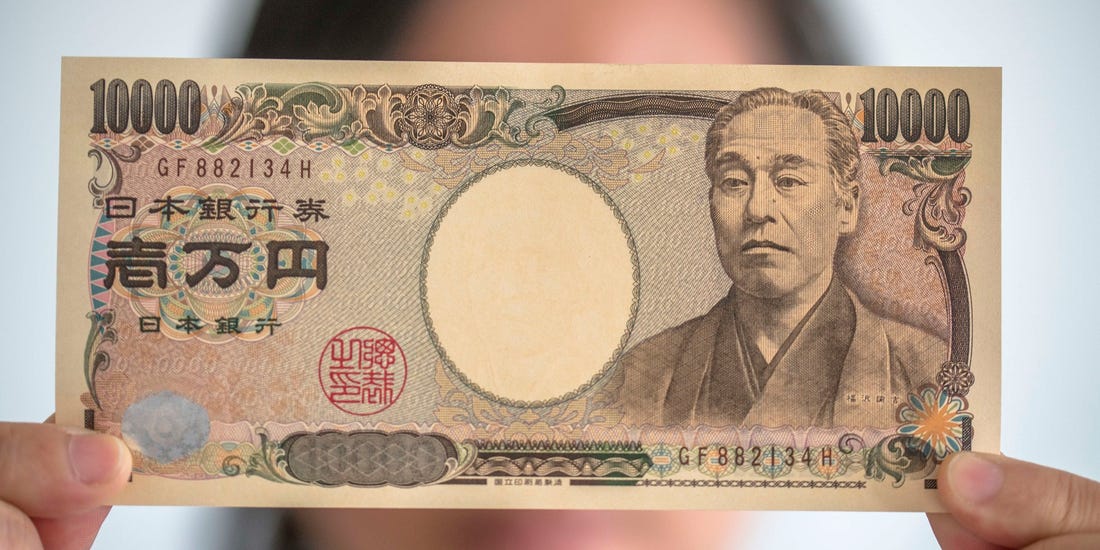Cash is still the first choice in Japan: the average age of the population, constantly increasing, shows an important part of the country very reluctant to accept changes of any kind.
Prime Minister Shinzo Abe has been busy for months in an effort to move the country to cashless payments and eliminate cash as much as possible. Japan is currently the most technologically advanced country that makes the most use of cash.
The effort is indeed producing some success, but not on the scale hoped for. A growing number of elderly people and pensioners are stoically resisting change and, by lowering the country's average, is keeping Japan at a standstill in the use of electronic money.
The data show a pitiless situation: in South Korea, electronic transactions are now 96% of the total, and in China, although reluctant, they already reach 66%.
The plans of the Japanese government
Tokyo aims to double the use of electronic money (currently just 20%) by 2025, and raise it to 80% by 2040 to stimulate the circulation of money and productivity.
The move to digital transactions will help Japan cope with a number of small and big problems: stores will be able to automate sales estimates, banks will be able to reduce the sprawling and expensive network of ATMs that are located everywhere. “citizens will have more immediate payment methods and security from robberies and thefts,” I quote from one of the prime minister's recent speeches.
Incentives and “tricks”
It must be said that Abe is trying everything, by hook and by crook. The latest initiative, born on October 1st, has the flavor of dirty play: an increase in sales taxes. Bad news for everyone, but the government promptly "discounted" these increases to those who pay with electronic money. “Virtuous” citizens will have their major expenses reimbursed with a series of points that can be spent in supermarkets and shops in the town. Dear, aren't they?
On the private side, the goal of eliminating cash and digitizing payments in Japan is pursued by large companies in the sector with aggressive communication campaigns.
SoftBank Group Corp, Yahoo Japan Corp and e-commerce company Mercari are at the forefront of the fight against cash.
Some found initial success. PayPayFor example, a QR code-based payment app, jointly owned by SoftBank and Yahoo Japan, saw registrations go from 3 million to 5 million in 15 months, partly due to government initiatives.
Why does Japan resist?
Japanese families hold over half of their assets in cash and deposits. A percentage that increases with the elderly, some of whom remain loyal to cash as a means of preventing unnecessary spending.
Mainly they feel uncomfortable at the idea of losing their mobile phone, and it is not clear to them how much they spend: this is why the first choice remains their wallet.
Other reasons for reluctance
Low crime rates, ultra-low interest rates and a national network of ATMs have long made liquidity attractive in Japan, offering people little incentive to switch to cashless payments.
The trend may gradually change as commercial banks rationalize their ATM networks, reducing consumers' access to cash.
In Yakaja Ginza, one of the liveliest shopping districts in central Tokyo, many small shops have yet to accept cashless transactions.
Small examples of resistance
Kind Mitsuo Kotake, 70, owner of a small flower shop, said he started offering PayPay three months ago and also ended up on TV to tell about it. Unfortunately, entering pin codes and setting up apps is simply too complex for its customers, mostly older people who come to buy flowers for the graves of their loved ones, he added.
“It's easy for young people to use, but older people aren't familiar with it,” he has declared. “I myself don't use these tools. Money is the fastest. “
In short, advance as much as you want, technology everywhere, but when it comes to eliminating cash the Japanese show a very conservative nature.


